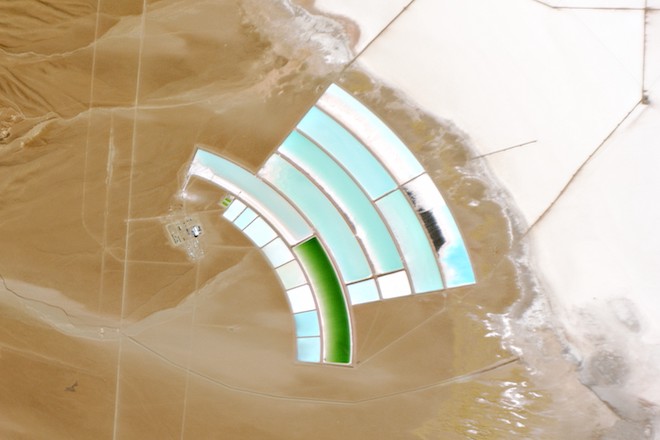The Anthropocene is a widely used term that designates the most recent epoch in Earth's history: an epoch in which humans have radically altered (and disrupted) the climate and ecosystems of the planet. The annual Welcome to the Anthropocene lecture series invites scholars and researchers across the humanities, social and natural sciences to explore how their disciplines are responding—both to the concept of the Anthropocene, and to the planetary crisis that it designates. For the 2022 Anthropocene Lecture Series we invited leading international scholars.
2022 Convenors and organizers: Hugo Reinert and Pierre du Plessis.
How to attend
The 2022 lecture series will be broadcast on Zoom, free and open to the public. Register in advance to join the whole series.
Intimate Inheritance: Plastic and Its Relations
March 10, 2022 16:15-17:00 CET
Heather Davis is a writer, researcher and teacher whose work draws on feminist and queer theory to examine ecology, materiality, and contemporary art in the context of settler colonialism. She is assistant professor of Culture and Media at The New School in New York.
Read more
Thinking through questions of inheritance, intimacy, and queer ecologies, I introduce the concept of plastic matter. Building on the work of scholars in feminist new materialism, petrocultures, and science and technology studies, I use the concept of plastic matter to describe the philosophical assumptions that fostered the conditions for plastic to emerge in the world in the first place. This concept speaks to how the materiality of plastic has been transferred to our expectations of matter more broadly, how matter itself has come to be produced as inherently pliable, disposable, and consumable. I argue that it is important to become more intimate with the objects we abjure, more curious about plastic, not to eschew the very real damage it is doing, but as an invitation to become more accountable.
Suggested readings
Davis, Heather. 2022. Plastic Matter. Duke University Press.
Ironies of the Anthropocene
March 23, 2022 16:15-17:00 CET
Marcia Bjornerud is Professor of Environmental Studies and Geosciences at Lawrence University in Appleton, where her research focuses on the physics of earthquakes and mountain-building. She is the author of Reading the Rocks: The Autobiography of the Earth and Timefulness: How Thinking like a Geologist can Help Save the World.
Read more
Within the past decade or so, study of the Anthropocene has emerged as a new subdiscipline, with its own conferences, journals, and even post-graduate programmes. In the geosciences, the focus has naturally been stratigraphic: how exactly do we mark the moment in geologic time when we crossed the threshold and left the Holocene? As a geoscientist not directly involved in this process, I sense the impossibility of capturing the real meaning of the Anthropocene using the tools of the geosciences. This is one of many ironies concerning the role of geology in defining the Anthropocene. The most tragic is that in this ‘human-dominated’ time, we will in fact have less agency over our destiny than we enjoyed in the stable Holocene when we had some basis for believing that the past would be a good guide for the future.
Suggested readings
Bjornerud, Marcia. 2018. Timefulness. Princeton University Press.
Anthropocene Patches: Space, Time and Position
April 6, 2022 16:15-17:00 CET
Anna Tsing is a professor of anthropology at the University of California, Santa Cruz, and a Niels Bohr Professor in the Department of Culture and Society at Aarhus University in Denmark. She is the author of In the Realm of the Diamond Queen (1993), Friction (2005) and The Mushroom at the End of the World (2015).
Read more
Anna Tsing will be discussing "Feral Atlas: The More-than-Human Anthropocene," a project she co-curated with Jennifer Deger, Alder Keleman Saxena and Feifei Zhou. Feral Atlas offers an original and playful approach for exploring issues critical to the Anthropocence and invites users to explore the ecological worlds created when nonhuman entities become tangled up with human infrastructure projects.
Suggested readings
Website: Feral Atlas
A Cosmopolitical Challenge: Activating uBuntu in Partnerships between Environmental Management Sciences and the Humanities
April 27, 2022 16:15-17:00 CET
Lesley Green is Professor of Anthropology and Director of Environmental Humanities South at the University of Cape Town. She is currently a Cheney Visiting Research Fellow at the School of Earth and Environment at Leeds, working to build stronger social science and humanities engagement with earth and life sciences.
Read more
Environmental humanities traces and stories relations of all kinds—bio-geo-socio-techno—with the broad goal of shifting modernist consciousness from human exceptionalism and towards the lived experience of planetarity, rethinking and challenging the theory of the world that undergirds neoliberalism and the logics of objectification and commodification. Yet where knowledge of the planetary crisis and its potential remediations translates earthly processes, for their own protection, into data objects to be audited by accountants, objectification and commodification take centre-stage, advanced by their compatibility with the enumerative logics propounded by neoliberalism and technofeudalism. In sum: where climate development and sustainability advocates require knowledge producers to become translators of lived experience into the world of the spreadsheet, environmental humanists and activists address the devastations that not infrequently arise from the implementation of those policies. This may lead to a number of problems between researchers who, while they share the common sense of urgency to address planetary crisis, may find themselves in competition over project concepts, and at loggerheads in respect of critique, methods, and oversights. How can the natural sciences and environmental social sciences and humanities build the alliance that is crucial in addressing our shared planetary crisis? In this talk I aim to open these issues generatively by identifying the problem as the modernist theory of the human-in-the-world dating back to the 1600s, and, taking a leaf from Latour’s proposal to “recall modernity for a product improvement”, propose an African climate-response scholarship that takes as its point of departure an African philosophy of the human—that is, uBuntu.
Suggested readings
Green, Leslie. 2020. Rock | Water | Life. Duke University Press.
2022 Poster

